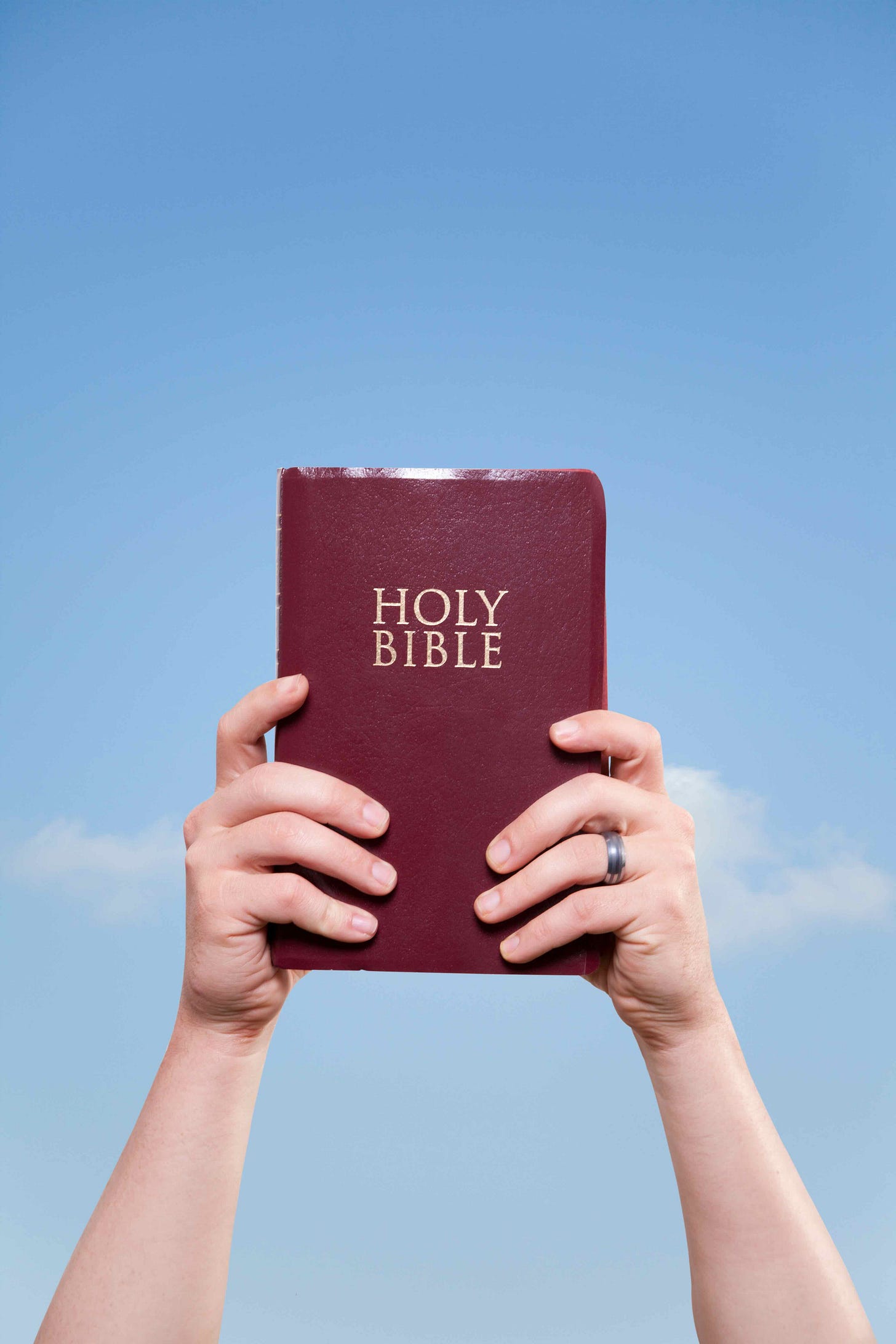Lift High the Gospel!
Our Exodus from sin
Yesterday, at Mass, I noticed something I’ve seen many times before but never truly reflected on—the priest, carrying the Book of the Gospels, lifting it high as he processed toward the ambo. It’s a simple gesture, almost easy to overlook. But then, I remembered something a priest once told me: This act is a reminder of Moses leading the Israelites out of slavery.
That image stayed with me. Moses—standing before Pharaoh, leading a nation through the desert, struggling with their complaints, pleading for their faithfulness, and pointing them toward the Promised Land. And let’s be honest, it was no easy task. Imagine trying to lead a few million people through the desert for forty years, all while listening to non-stop complaints: "We’re hungry." "We’re thirsty." "Moses, are we there yet?" It makes a road trip with cranky kids seem like a peaceful retreat.
And yet, isn’t that, in a way, what the Gospel does for us? It picks us up, leads us away from sin, and then we—just like the Israelites—turn around and say, "Wait… I have to change? This is hard. Can’t I just go back to Egypt where everything was predictable—even if it was terrible?"
Moses’ story is one of deliverance, trust, and struggle—themes that are just as relevant today as they were thousands of years ago. He delivered the Israelites from slavery in Egypt. He interceded for them when they doubted and rebelled. He led them through the desert, a place of testing and purification. He gave them the law—not his own, but God’s. And, in the end, he pointed them toward the Promised Land, even though he himself wouldn’t enter. (Which, let’s be honest, had to be frustrating. After 40 years of wandering, he probably longed for at least a weekend getaway in Canaan.)
Every time we hear the Gospel, it is like Moses leading us anew, calling us away from slavery—not to Pharaoh, but to sin. At Mass, when the Gospel is carried high, it symbolizes that Christ is our new Moses—leading us, guiding us, freeing us. Jesus, like Moses, speaks the words of the Father. He comes to set captives free. He performs miracles in the wilderness—feeding the 5,000 as Moses called down manna from heaven. And He promises a greater Promised Land—not Canaan, but Heaven. The Gospel isn’t just a book—it is the living Word of God, raised high to remind us where we are going and who is leading us there.
Before the Israelites could enter the Promised Land, they spent 40 years in the wilderness. Why? Because freedom from slavery wasn’t just about leaving Egypt—it was about removing Egypt from them. They had to learn trust instead of fear. They had to let go of idols. They had to depend on God’s providence instead of their own control. In other words, they needed a whole lot of spiritual detox. Sounds familiar, doesn’t it? We all have deserts to walk through. Lent is a time when we, like Israel, are called away from our false comforts and challenged to trust God alone. When we fast, when we pray, when we give alms—we aren’t just performing rituals. We are letting go of Egypt—the slavery of sin, the false promises of comfort, the things that distract us from the Promised Land of Heaven.
The Gospel leads us, but we, too, are called to lead others. Moses didn’t walk alone—he had Aaron, Joshua, and the seventy elders. Neither do we. Parents lead their children in faith. Priests and deacons carry the Gospel in their hands, but every Christian is called to carry it in their life. Friends lead one another closer to Christ—or, if we aren’t careful, away from Him. Who are you leading? Are you bringing people toward Christ or away? Are you helping others walk through their desert seasons with encouragement and faith? Are you keeping your own eyes fixed on the true Promised Land? Moses carried the staff of God as he led Israel. The priest carries the Gospel. But you? You carry Christ to the world.
Next time you see the Gospel lifted high at Mass, remember this: It is not just a book. It is not just a ritual. It is the voice of God leading us out of slavery. It is the call to leave Egypt behind. It is the promise that if we follow Him, we will reach the true Promised Land. Like Israel, we are still on the journey. Like Moses, we are called to lead others forward. And like the Gospel raised before us, our eyes must always be lifted toward Heaven.
Will we follow? Or, like the Israelites, will we try to turn the car around five minutes into the trip?



